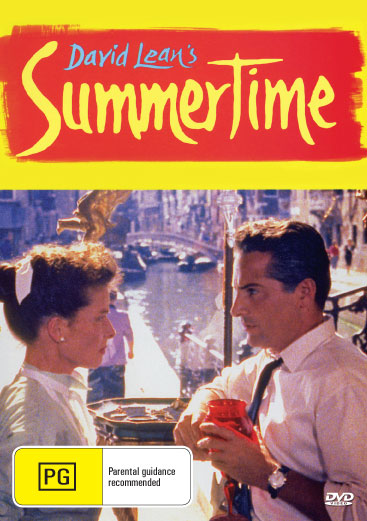rareandcollectibledvds
Summertime on DVD, Drama, Katharine Hepburn, Rossano Brazzi
Summertime on DVD, Drama, Katharine Hepburn, Rossano Brazzi
 Before you ORDER please check do you wish to order a DVD or a Digital Download file
Before you ORDER please check do you wish to order a DVD or a Digital Download fileFor DVD use the GET DVD Button
For a Digital Download use the DOWNLOAD Button
Couldn't load pickup availability
The American secretary Jane Hudson (Katharine Hepburn) travels from Ohio to Venice. Jane is a middle-age single and lonely woman that has saved money for her dream trip. On the arrival, she immediately befriends the owner of the boarding house Signora Fiorini (Isa Miranda). During the night, she goes to a café and an Italian helps her to call the waiter. Jane feels sort of uncomfortable for being alone and on the next day, she sees a red glass goblet in the window of an antique store. The owner, Renato de Rossi (Rossano Brazzi), who is the man that helped her, explains that it is an ancient goblet from the eighteenth century and therefore expensive. Then he also explains that she should always bargain for a lower price in Venice. Jane recognizes Renato from the previous night and becomes clumsy. Soon Renato woos her, but the needy Jane is afraid to love.
STARS: Katharine Hepburn, Rossano Brazzi, Isa Miranda
100 min | Comedy, Drama, Romance | 1955 | Color
Movies with low demand and/or out of print are manufactured-to-order using high quality recordable DVDs. Please read FAQs if unsure, or send a query.
All DVDs are Region 0 and are guaranteed to play on any DVD player in any country in the world
Satisfaction Guarantee – if you are not satisfied with any aspect of your purchase then we will explore all options to rectify the issue
COMBINED POSTAGE: ONLY CHARGED FOR THE FIRST DVD ALL OTHERS IN A MULTIPLE ORDER ARE POST FREE
Postage: Free In Australia.
Postage: Rest Of The World at Table Rate
All DVDs come in a DVD case with color artwork and printed disc
All DVDs are available as an MPEG4 file sent to you via an email link. Save on postage and waiting time. Transfer can take up to 12 hours depending on the time zone you are in.
Fragile bittersweet romance amid gorgeous Italian settings…
Summertime is more of a mood piece than anything else. It captures the loneliness of a traveler in a foreign land, in this case a spinster who is hungry for love but too repressed to accept the love Rossano Brazzi offers. It has a bittersweet ending, appropriate for a thin story that sets the tone early on and never once makes us believe that Hepburn is going to find her true love in Venice. The photography is gorgeous and must have had everyone heading for the nearest travel bureau for a tour of Italy when the film was released. The performances are all excellent–but the film belongs to Hepburn. She creates one of her most moving and truthful portraits–sensitively showing us what this woman feels as she watches others pairing off for affairs, alone and unable to really connect. The sexual mores of the 1950s permeate the film–the sexual revolution was just over the horizon but not yet evident. One of Hepburn’s most subtle, yet affecting performances. With David Lean’s sensitive direction, the gorgeous photography and the evocative background music, “Summertime” will put you under the spell of its fragile romance. Easy to see why Brazzi was the ultimate continental charmer.


